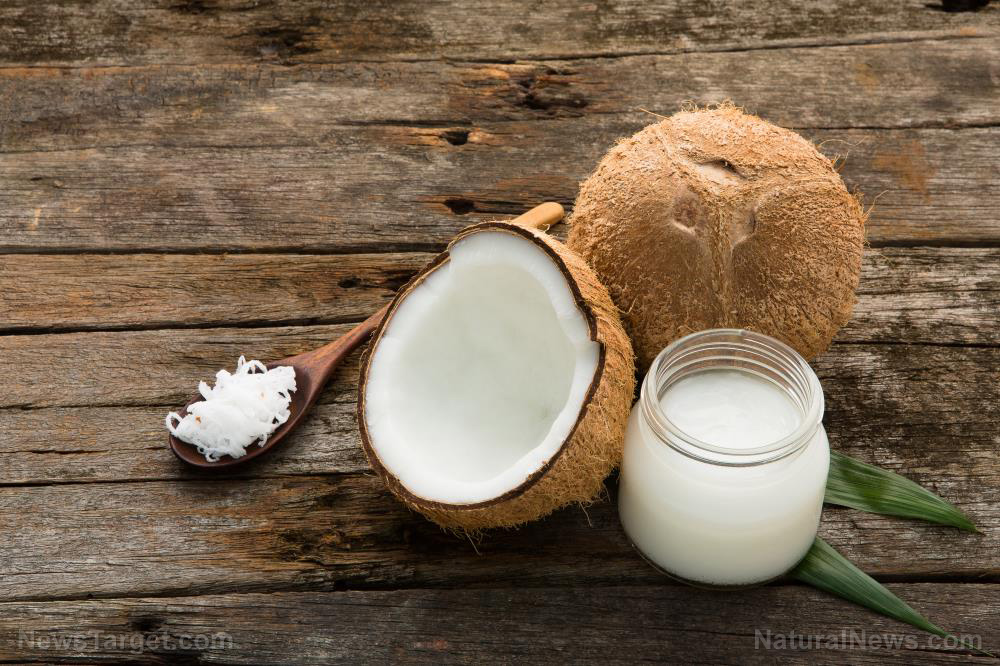Understanding how TCM treats heart disease, thanks to metabolomics
03/25/2020 / By Evangelyn Rodriguez

Metabolomics is the study of small molecules called metabolites, which can be found in cells, biological fluids and different organisms. This approach is often used to understand how bodily functions are affected by external events and conditions, and to measure the response of different body parts to perturbations, such as those caused by a disease. Metabolomics is considered a powerful tool because metabolite concentrations directly reflect not only biochemical activity, but, most importantly, the state of cells or tissue.
In an article published in the Chinese Journal of Natural Medicines, researchers from China discussed the application of metabolomics in the early diagnosis, the discovery of biomarkers and the treatment of coronary artery disease (CAD) using traditional Chinese medicine (TCM). TCM has gained the gradual acceptance of the international community in recent years, but scientific understanding of the methods and theories used in TCM is still lacking.
How metabolomics can help modernize TCM
In their review, the researchers emphasized the lack of an objective system of evaluation for the therapeutic mechanism of TCM and the need for new technologies. They said that traditional risk factors do not promote the detection and prevention of myocardial infarction (MI) or heart attack among patients with CAD. On the other hand, the development of omics technology, especially metabolomics, has allowed scientists to predict the level of metabolites in vivo, and diagnose the physiological state of the body.
Recently, metabolomics has made great progress in recognizing biomarkers for coronary artery disease (CAD). The researchers mentioned how one study used metabolomics to identify metabolites that have the strongest association with CAD. These metabolites were found to be palmitic acid, linoleic acid, 4-pyridoxic acid, phosphatidylglycerol, carnitine and lithocholic acid.
The same study also found five metabolites, namely, N-acetyl-D-glucosamine 6-phosphate, methylitaconate, 1-naphthol, 2-naphthol and L-carnitine, in plasma samples taken from 40 CAD patients. Because of these findings, the researchers believe that metabolomics is a powerful tool that can help promote the modernization of TCM and its development into personalized medicine.
They also noted that metabolomics will not only improve current treatments for CAD, but it will also help elucidate the mechanism behind the therapeutic effects of TCM on patients with CAD.
Treatments for coronary artery disease in TCM
According to the theory of TCM, CHD is a disease categorized under “chest pain” and “heart pain” and has many causes, mainly stagnation of qi, blood stasis and phlegm turbidity. Therefore, TCM practitioners prescribe herbal medicines that can help clear away heat, resolve phlegm, promote blood circulation and remove blood stasis. (Related: Used for thousands of years in TCM, Psoralea corylifolia treats a variety of diseases from heart disease to cancer.)
One example of an herbal TCM formula used to treat CHD is the shenzhu guanxin recipe. This medicine consists of seven components, namely, the dried roots of Asian ginseng, the rhizome of black atractylodes, the roots of Chinese ginseng, the rhizome of the crow-dipper plant, the roots of American ginseng, lotus leaves and the European medicinal leech. Reports suggest that shenzhu guanxin can improve blood circulation, enhance qi and eliminate intravascular phlegm.
Another commonly used TCM for treating CHD is the xuanbi antong granule. This formula consists of eight herbal medicines, such as red sage, the roots of the kudzu plant, the roots of the red peony, ginseng of the desert, the rhizome of the crow-dipper plant, the roots and rhizome of the ginseng plant, the Chinese goldthread and the American ginseng. Some of these herbs are said to have antioxidant, anti-atherosclerotic, lipid-lowering and anti-inflammatory properties.
One of the oldest TCM used to treat CHD is the huoxue huayu therapy. This therapy involves a set of herbal formulations, such as the tong guan capsule, which inhibits thrombus formation; xuefu zhuyu capsule, which inhibits inflammatory reactions by decreasing the production of pro-inflammatory molecules; guan jie ling, which can also inhibit inflammatory reactions; and buyang huan wu decoction, which can treat disorders related to blood circulation and improve energy metabolism.
Many studies have demonstrated the effectiveness of TCM in treating serious conditions like CHD, so a better understanding of how it works can help scientists find ways of using TCM to its full potential.
Find out more about TCM that help improve heart health at ChineseMedicine.news.
Sources include:
Tagged Under: alternative medicine, biomarkers, Chinese medicine, coronary artery disease, diagnosis, heart disease, heart health, herbal medicine, Herbs, metabolites, metabolomics, natural cures, natural medicine, research, TCM
RECENT NEWS & ARTICLES
ReverseHeartDisease.News is a fact-based public education website published by Reverse Heart Disease News Features, LLC.
All content copyright © 2018 by Reverse Heart Disease News Features, LLC.
Contact Us with Tips or Corrections
All trademarks, registered trademarks and servicemarks mentioned on this site are the property of their respective owners.



















